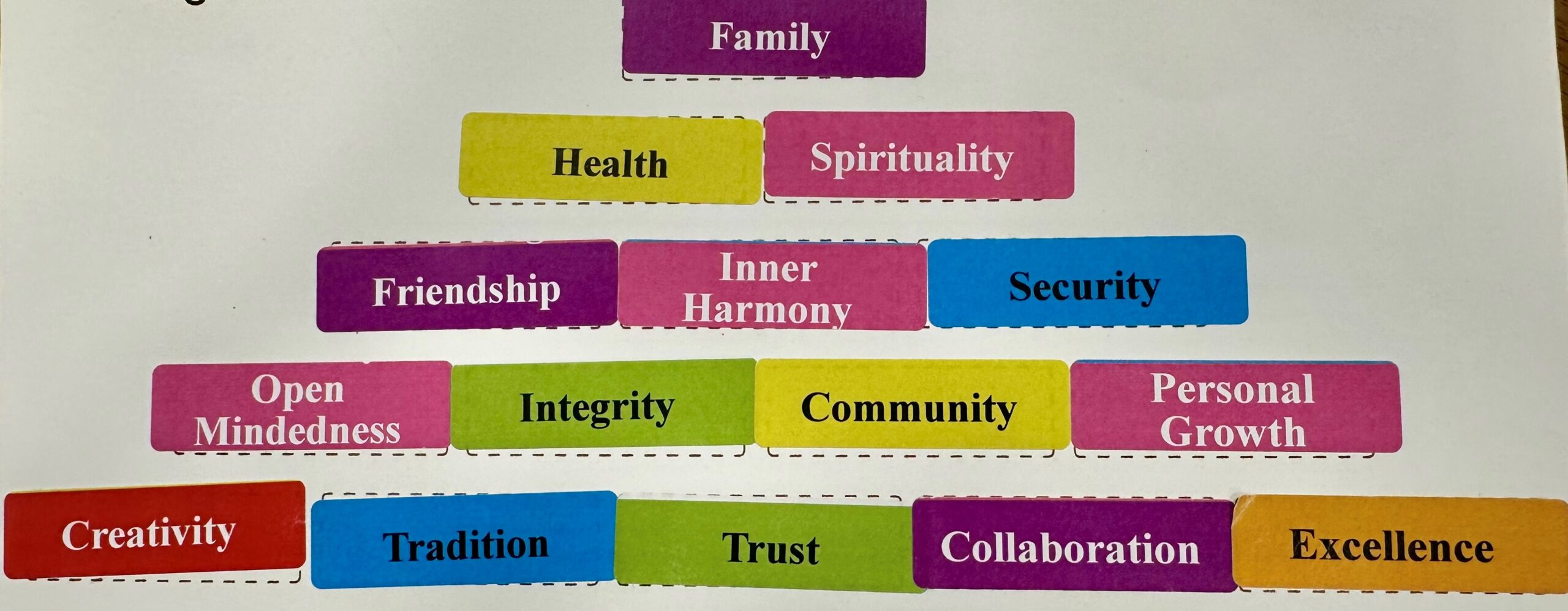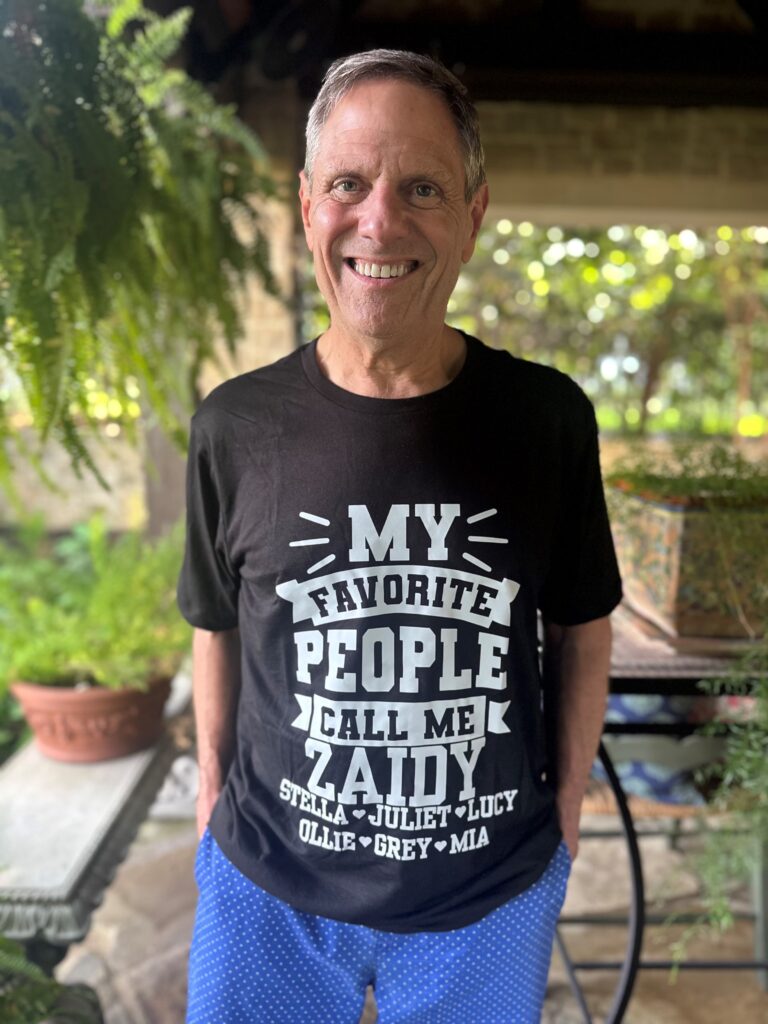Last week, I featured a repeat of my all-time most popular blog post, “Happy ‘Sobriety’ Birthday to My Daughter.” I wrote that post a year ago, expressing gratitude for Lizzy completing her third year of being sober. I shared how in a sobriety program, the celebrant randomly selected a card with a value to embrace for the coming year. The word was “joy.” Given that Lizzy’s third sobriety birthday closely coincided with my 70th birthday, I decided one year ago that my goal for my 70th year was to experience joy.
In that post, I revealed that I engaged in a values exercise with my TIGER 21 group. We each created a “values pyramid,” selecting 15 values from a long list and prioritizing them with the top one, then next two, then next three, then next four. The group then constructed a group pyramid, and I was shocked that one of the group’s top five values was “joy.” The word “joy” was nowhere on my values pyramid. That wake-up call motivated my decision to prioritize seeking “joy” in my life.
Here I am one year later with an update, as I now celebrate my 71st birthday. The feedback people sent me taught me a lot about joy. I’ll share some of those insights.
One reader tied together the concept of joy with my daughter’s sobriety journey. He divulged that he is on his own sobriety journey, 16 years sober. Here’s his message: “The word ‘joy’ hit me really deep, as I only learned joy when getting sober. I was looking for happiness for 60 years, sometimes trying to buy it in the form of a bigger car or something material. It did not work; it did not last long. Happiness comes from outside and joy comes from inside. The challenge is to know WHO you are, not what you have done or what you are doing.”
The idea of identifying WHO you are especially resonates with me, now that I’m celebrating my second year in the decade of the 70s. Wall Street Journal columnist Peggy Noonan helped me process that when she quoted Rabbi Angela Buchdahl: “’When you’re 60 you’re at the peak of your power—running the law firm, the most respected doctor. At 70 you’re having to grapple with transitions, with who I am, and the aging of the body. It is the time of confronting the big questions of life…. This is a fruitful time to ask the questions about what we want to be. We are on a journey, all of us leaving a narrowing, constricted place for a place of freedom.’” (“Easter and Passover Lesson: It’s Never Too Late,” April 17, 2025)
In my monthly TIGER 21 group meetings, I speak openly about my goals for this decade of life. As Rabbi Buchdahl says, the 70s is a time of transition. My best friend Talmage Boston advocates that we should periodically reinvent ourselves. Doing so allows us to avoid burnout, remain relevant, and stay energized. Turning 70 and entering this time of transition is a perfect opportunity to reinvent myself. Part of that reinvention is my commitment to writing this weekly blog, and hopefully soon collating my writings into a book on building a lasting legacy.
I am actively exploring how to make the most of this decade. The word “joy” is now a part of my vocabulary for this chapter of my life. I have always been notorious for postponing joy. I’m wired to put off joy till the future. Reaching my 70s, I realize (in the words of my former TIGER 21 chair Bill Case), “the future is now.” I’ve come to that realization more than ever since Laurie and I had a close brush with death a few months ago. We miraculously survived a rogue wave in Cabo that viciously tried to swallow us up. (See my post of April 29, 2025: “I’m Now a Cat with Eight Lives”) Indeed, since that trip to Cabo, I notice that I worry far less, sleep better, and embrace joy each day.
I’ll conclude my 71st birthday recommitment to joy with wisdom from a dear friend and mentor Kasia Flanaghan of Everyday Legacies: “In the Book of Mormon, in a part where a father is teaching a son about the purpose of life, he tells him: ‘men are that they might have joy.’ I think joy is meant to be a more holistic emotion than we sometimes understand. Rather than just being a synonym for happiness, which can be fleeting, I think it is a capstone to feelings of gratitude, humility, peace, and purpose.”
Kasia then asked if I would reveal my values pyramid, the one that omitted the word “joy.” In the spirit of openness and vulnerability, I’m attaching my values pyramid here. Although this pyramid was created several years ago, it still describes how I tick. The word joy is missing, but as I review it today, I believe the sum total of these 15 values adds up to a life filled with joy, the kind of holistic joy Kasia so eloquently describes.
Marvin E. Blum

Marvin Blum’s values pyramid, prioritizing the top 15 selected from a long list of values.

